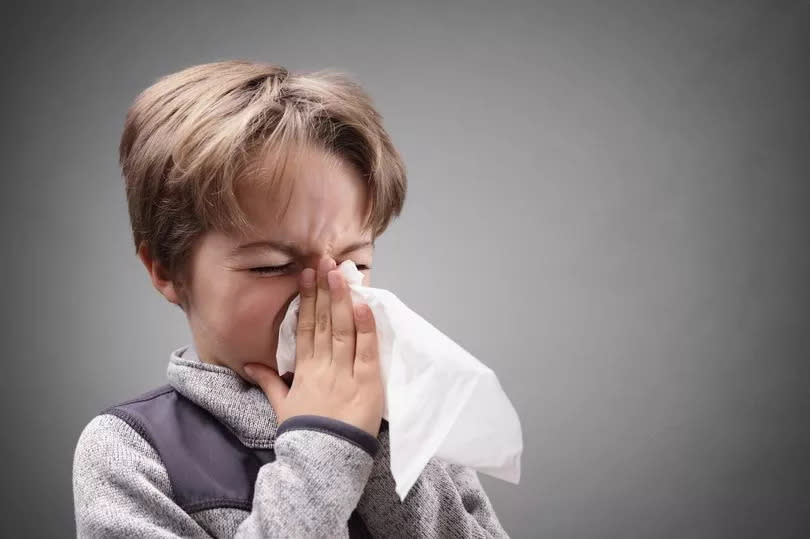Whooping cough symptoms timeline amid 'high rates of infection'

UK health chiefs have issued a warning due to a "high rate" of whooping cough infection.
The UK Health Security Agency (UKHSA) said cases continue to increase, with 1,319 new cases confirmed in March. In the first quarter of 2024 (January - March), there have been five infant deaths with the illness.
A new post on X, formerly Twitter, on Thursday from the UKHSA official account reads: "Do you know the facts about #WhoopingCough?
READ MORE: Latest covid symptoms amid thousands of new cases and FLiRT variants
READ MORE: Mum says 'it's not fair' after £2k fine for taking kids out of school
"With high rates of #infection it's important to know how to protect your child from the contagious bacterial infection."
Whooping cough is a bacterial infection of the lungs and breathing tubes. It spreads very easily and can sometimes cause serious problems, as per NHS guidance.
The illness can sometimes mimic a common cold and other bugs, but symptoms can last for weeks, and even months. But it is important to identify whooping cough so you can deal with it correctly.
Signs and symptoms of whooping cough
Early symptoms can last for one to two weeks and usually include:
Runny or stuffed nose
Low-grade temperature (less than 38 degrees celsius)
Mild, occasional cough (babies do not do this)
Apnea (life-threatening pauses in breathing) and cyanosis (turning blue or purple) in babies and young children
Later symptoms:
One to two weeks after the first symptoms start, people with whooping cough may develop paroxysms which is rapid, violent, and uncontrolled coughing fits. These coughing fits usually last one to six weeks but can last for up to 10 weeks. Coughing fits generally get worse and become more common as the illness continues.
The coughing fits can cause people to:
Make a high-pitched “whoop” sound when they are finally able to inhale at the end of a coughing fit
Vomit during or after coughing fits
Feel very tired after the fit, but usually seem well in-between fits
Struggle to breathe
Recovery:
Recovery from whooping cough can be slow. The cough becomes milder and less common as you get better.
Coughing fits may stop for a while but can return if you get other respiratory infections. Coughing fits can return many months after the whooping cough illness started.
Treatment for whooping cough
Treatment for whooping cough depends on your age and how long you’ve had the infection. Children under six months who are very ill and people with severe symptoms will usually be taken to hospital for treatment.
People diagnosed during the first three weeks of infection may be prescribed antibiotics to take at home. These will help stop the infection spreading to others, but may not reduce the symptoms. People who’ve had whooping cough for more than three weeks won’t normally need any specific treatment, as they’re no longer contagious and antibiotics are unlikely to help.
You should ask for an urgent GP appointment or get help form NHS 111 if:
your baby is under 6 months old and has symptoms of whooping cough
you or your child have a very bad cough that is getting worse
you've been in contact with someone with whooping cough and you're pregnant
you or your child has been in contact with someone with whooping cough and have a weakened immune system
Whooping cough can spread very easily. It's best to call the GP before you go in as they may suggest talking over the phone.
Receive newsletters with the latest news, sport and what's on updates from the Liverpool ECHO by signing up here

 Yahoo News
Yahoo News 
